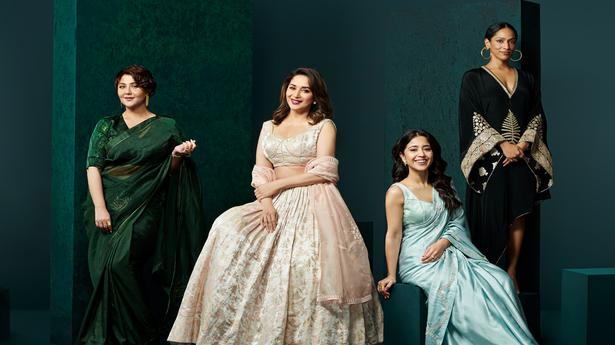
Women’s Day 2022 | Closing the gap behind the camera
The Hindu
At Netflix’s latest roundtable, Masaba Gupta, Shweta Tripathi Sharma and others discuss the streaming landscape’s impact on female storytellers
Over the last few years, the Indian streaming space has led the charge in championing female narratives in a way the big screen hasn’t. India’s booming OTT landscape has showcased several diverse stories centred on women - Disney+ Hotstar’s Aarya and Humans, SonyLIV’s Maharani, Amazon Prime Video’s Pushpavalli and Made in Heaven, to name a few.
“We’ve had 2,400 female crew members across our series production in the last year”Tanya Bami,Netflix India
As for Netflix India, for all its faults and fumbles in the original series space, one arena where it has consistently delivered is in narratives centered around women. In the last year alone, the streaming giant has offered up Bombay Begums, Aranyak, Yeh Kaali Kaali Ankhein, and The Fame Game — shows mounted around female characters. Bombay Begums features female writers and directors, and Yeh Kaali Kaali Ankein, a female writer.
That said, the larger OTT gender representation story behind the camera remains far less encouraging. A recent report published by Film Companion and Ormax Media found that, out of almost 130 movies that released between 2019 and 2020 across theatrical and streaming, less than 10% had female HODs on set. This is why when Netflix India held the third edition of its Now Stree-ming event, aimed at celebrating the platform’s female artists and storytellers, I was ready with my questions. My panel comprised of actors Shweta Tripathi Sharma ( Yeh Kaali Kaali Ankhein), Swastika Mukherjee (Anvita Dutt’s upcoming Qala) and Masaba Gupta ( Masaba Masaba), together with Netflix India Series Head Tanya Bami and the popular Sima Aunty (Sima Taparia of Indian Matchmaking). Edited excerpts:
Shweta and Swastika
What do you feel streaming has given you that the big screen hasn’t?
Shweta Tripathi Sharma: As an actor, what I find most exciting about the OTT space is that characters are no longer “dry cleaned” and they go beyond the fixed definitions of what a hero and heroine can or should be. What I love is [that] we’re judging less. It’s more relatable and real and the stories and characters have a lot more depth, juice, and meat.











